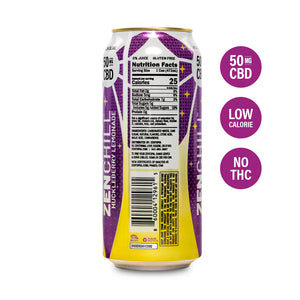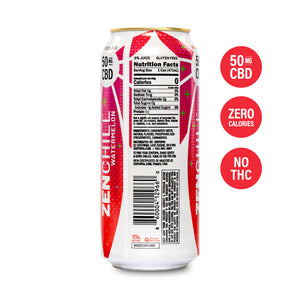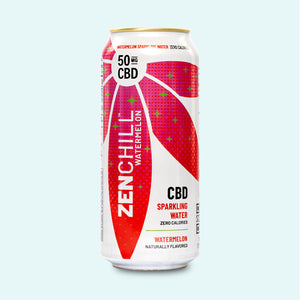
CBD and Sleep: The Effects of CBD on Sleep
In recent years, CBD has gained significant popularity as a natural remedy for a wide range of health issues. One area where CBD is particularly promising is sleep. Sleep is essential for our physical and mental well-being, yet many people struggle to get the quality rest they need. This blog post aims to explore the relationship between CBD and sleep, delving into how CBD can potentially help improve sleep quality, reduce sleep disturbances, and aid in managing sleep disorders.
Understanding CBD
What is CBD?
CBD, or cannabidiol, is a naturally occurring compound found in the cannabis plant. Unlike its cousin THC (tetrahydrocannabinol), CBD does not have psychoactive properties, meaning it won't get you "high." Instead, CBD is renowned for its therapeutic benefits, which include reducing anxiety, alleviating pain, and promoting better sleep.
How does CBD work in the body?
CBD interacts with the body's endocannabinoid system (ECS), a complex network of receptors and neurotransmitters that play a crucial role in maintaining homeostasis. The ECS influences various physiological processes, including mood, pain sensation, appetite, and sleep. By interacting with ECS receptors, CBD can help regulate these processes and promote a sense of balance and well-being.
CBD's impact on sleep is thought to be related to its ability to reduce anxiety and pain, both of which can interfere with sleep. Additionally, CBD may influence sleep-wake cycles, helping to improve overall sleep quality.
The Science Behind CBD and Sleep
Research on CBD and Sleep
Scientific research on CBD and sleep is still in its early stages, but initial findings are promising. Several studies have explored how CBD affects sleep patterns and the management of sleep disorders.
- Key Studies:
- A 2019 study published in The Permanente Journal found that 66.7% of participants experienced improved sleep after taking CBD.
- Another study in Frontiers in Pharmacology suggested that CBD could be beneficial in managing REM sleep behavior disorder, which is common in patients with Parkinson's disease.
Mechanisms of Action
CBD's potential to improve sleep stems from several mechanisms:
- Reduction of Anxiety and Stress: Anxiety is a common cause of insomnia and other sleep disturbances. CBD has been shown to reduce anxiety by interacting with serotonin receptors in the brain, which can create a sense of calm and relaxation conducive to sleep.
- Pain Relief and Muscle Relaxation: Chronic pain can significantly impact sleep quality. CBD's anti-inflammatory properties may help alleviate pain, making it easier for individuals to fall asleep and stay asleep.
- Regulation of Sleep-Wake Cycles: The endocannabinoid system (ECS) plays a vital role in regulating sleep-wake cycles. CBD interacts with ECS receptors to promote balance, potentially helping to normalize sleep patterns.
Summary of CBD's Mechanisms of Action on Sleep
|
Mechanism |
Effect on Sleep |
|
Reduction of Anxiety and Stress |
Promotes calmness, reduces insomnia |
|
Pain Relief and Muscle Relaxation |
Eases chronic pain, enhances sleep quality |
|
Regulation of Sleep-Wake Cycles |
Normalizes sleep patterns |
By addressing these underlying issues, CBD can help improve overall sleep quality and duration, making it a potential natural remedy for those struggling with sleep disorders.
Benefits of CBD for Sleep
Does CBD Make You Sleepy?
Not exactly! CBD doesn’t make you sleepy, but it has shown the potential to enhance sleep quality by addressing various factors that contribute to poor sleep. One of the primary ways CBD improves sleep quality is by increasing the duration of deep sleep stages. Deep sleep, also known as slow-wave sleep, is crucial for physical restoration and cognitive function. By promoting deeper sleep, CBD helps ensure that individuals wake up feeling refreshed and rejuvenated.
Reducing Sleep Disturbances
Sleep disturbances, such as frequent awakenings and difficulty falling asleep, can significantly impact overall sleep quality. CBD may help reduce these disturbances by:
- Decreasing Sleep Latency: Sleep latency refers to the time it takes to fall asleep. CBD has been found to reduce sleep latency, allowing individuals to fall asleep faster.
- Minimizing Night Awakenings: Some studies suggest that CBD can help reduce the frequency of night awakenings, leading to more continuous and uninterrupted sleep.
Aiding in the Management of Sleep Disorders
CBD has shown promise in managing various sleep disorders, including:
- Insomnia: Insomnia is characterized by difficulty falling or staying asleep. By addressing underlying issues like anxiety and pain, CBD can help individuals with insomnia achieve better sleep.
- Sleep Apnea: Sleep apnea is a condition where breathing repeatedly stops and starts during sleep. While more research is needed, some evidence suggests that CBD might help manage symptoms of sleep apnea.
- Restless Leg Syndrome (RLS): RLS is a condition that causes an uncontrollable urge to move the legs, often disrupting sleep. CBD's muscle relaxant properties may help alleviate RLS symptoms, promoting better sleep.
Benefits of CBD for Sleep
- Enhances deep sleep stages
- Reduces sleep latency
- Minimizes night awakenings
- Potentially beneficial for insomnia, sleep apnea, and RLS
By addressing these various aspects of sleep, CBD can significantly improve sleep quality and overall well-being.
How to Use CBD for Sleep
Choosing the Right CBD Product
When it comes to using CBD for sleep, selecting the right product is crucial. Here are the main types of CBD products available and their specific benefits:
- CBD-Infused Beverages: CBD beverages like Zentopia’s are an excellent choice for sleep because they offer a convenient and enjoyable way to consume CBD, combining hydration with the calming effects of CBD to help you relax and fall asleep more easily. Plus, they often come in various flavors, making the experience both pleasant and beneficial.
- Oils and Tinctures: These are popular for their fast absorption and ease of use. Simply place a few drops under the tongue for quick effects.
- Capsules and Edibles: These offer a convenient and discreet way to consume CBD, with effects that last longer but take more time to kick in.
- Topicals: While not typically used for sleep, topicals can help alleviate localized pain, which may indirectly improve sleep quality.
Dosage Recommendations
Finding the right dosage is essential for achieving the desired sleep benefits from CBD. Here are some general guidelines:
- Start Low and Go Slow: Begin with a low dose, such as 10-20 mg of CBD, and gradually increase until you find the optimal dose for your needs.
- Factors Affecting Dosage: Weight, metabolism, and the severity of sleep issues can all influence the effective dose. It's best to consult with a healthcare provider for personalized advice.
Timing and Method of Consumption
The timing and method of consumption can significantly impact the effectiveness of CBD for sleep. Consider the following tips:
- Best Time to Take CBD: For sleep, it's generally recommended to take CBD 30 minutes to an hour before bedtime. This allows enough time for the effects to set in.
- Methods of Administration: Oils and tinctures are absorbed quickly, making them ideal for immediate sleep aid. CBD drinks, edibles, and capsules take longer to kick in but provide sustained effects throughout the night.
Comparison of CBD Product Types for Sleep
|
Product Type |
Onset Time |
Duration of Effects |
Best Use Case |
|
Oils and Tinctures |
15-30 minutes |
4-6 hours |
Quick sleep onset |
|
Drinks, Capsules and Edibles |
30-120 minutes |
6-8 hours |
Sustained sleep support |
|
Topicals |
Varies |
Varies |
Pain relief (indirect sleep improvement) |
By choosing the right product, dosage, and method of consumption, you can maximize the potential sleep benefits of CBD and find the solution that works best for your individual needs.
Potential Side Effects and Considerations
Common Side Effects
While CBD is generally well-tolerated, some individuals may experience side effects. These can include:
- Dry Mouth: CBD can decrease saliva production, leading to a dry mouth sensation.
- Dizziness: Some people may feel lightheaded or dizzy after taking CBD.
- Changes in Appetite: CBD can increase or decrease appetite in some individuals.
These side effects are usually mild and tend to decrease over time as the body adjusts to CBD.
Interactions with Medications
CBD can interact with certain medications, potentially affecting their efficacy or causing unwanted side effects. It's important to consult with a healthcare provider before starting CBD, especially if you are taking:
- Blood thinners
- Antidepressants
- Anti-seizure medications
Healthcare providers can help determine safe dosages and monitor for any adverse interactions.
Quality and Safety
Ensuring the quality and safety of CBD products is crucial for reaping the benefits while minimizing risks. Here are some tips:
- Choose High-Quality Products: Look for products that are third-party tested for purity and potency. This ensures that the product contains the advertised amount of CBD and is free from harmful contaminants.
- Check for Full Spectrum, Broad Spectrum, or Isolate: Full-spectrum CBD contains other beneficial cannabinoids and terpenes, while broad-spectrum CBD has these compounds without THC. CBD isolate is pure CBD. Choose based on your preferences and needs.
- Review Lab Results: Reputable companies like Zentopia provide lab results (Certificates of Analysis) for their products, confirming the absence of pesticides, heavy metals, and other contaminants.
Tips for Ensuring CBD Quality and Safety
- Opt for third-party tested products
- Choose between full spectrum, broad-spectrum, or isolate
- Review Certificates of Analysis
By being mindful of potential side effects, interactions with medications, and the importance of product quality, you can safely incorporate CBD into your routine for better sleep.
Personal Experiences
Anecdotal Evidence
Many individuals have shared positive experiences using CBD to improve their sleep. Here are a few examples:
- John's Story: John struggled with insomnia for years and found that traditional sleep aids left him feeling groggy. After switching to CBD oil, he noticed he could fall asleep faster and wake up feeling more refreshed.
- Maria's Experience: Maria experienced frequent awakenings due to anxiety. She started using a CBD tincture before bed and reported a significant reduction in her anxiety levels, allowing her to sleep through the night.
These personal stories highlight the potential benefits of CBD for improving sleep quality and addressing underlying issues like anxiety and pain.
Frequently Asked Questions (FAQs)
Can CBD make you drowsy during the day? CBD is not typically associated with daytime drowsiness when taken at appropriate dosages. It helps promote relaxation and reduce anxiety, which can improve sleep quality without causing grogginess during the day.
Is CBD addictive? CBD is not considered addictive. Unlike THC, it does not produce a "high" and has a low potential for abuse or dependence.
How long does it take for CBD to work for sleep? The time it takes for CBD to work can vary based on the method of consumption. Oils and tinctures may take 15 to 30 minutes, while CBD drinks, edibles, and capsules can take anywhere from 30 minutes to 2 hours to take effect.
Can you build a tolerance to CBD? Current research suggests that tolerance to CBD is less likely compared to other substances. However, it is always best to use the lowest effective dose and consult with a healthcare provider if adjustments are needed.
What is the difference between CBD and melatonin for sleep? Melatonin is a hormone that regulates the sleep-wake cycle, while CBD interacts with the endocannabinoid system to address underlying issues such as anxiety and pain. Both can be effective, but they work in different ways and may be used together for optimal results.
Conclusion
In summary, CBD has shown promise in improving sleep quality, reducing sleep disturbances, and aiding in the management of sleep disorders. By addressing underlying issues like anxiety and pain, CBD can help individuals achieve better, more restful sleep. By understanding the effects of CBD on sleep and how to use it effectively, you can take a step towards achieving a healthier sleep routine and improving your overall quality of life.
For those interested in exploring the benefits of CBD for sleep, consider trying Zentopia’s range of CBD drinks which always prioritize safety and quality to ensure the best results!









